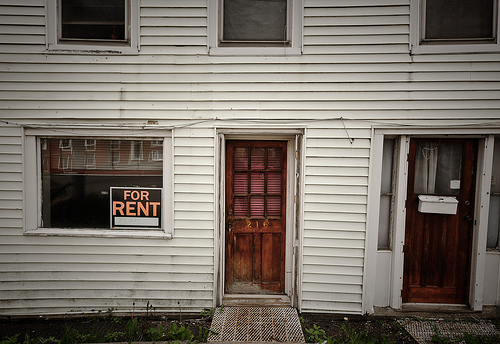A suspended program that cites property owners with city code violations or noise and nuisance issues caused by tenants could soon be back in effect.
The Probationary Rental Occupancy Permit ordinance has been suspended since 2011 after a new state law made the regulations illegal.
The city attorney last week recommended some amendments to the ordinance, which for now, remain in committee.
Until the revision is approved, according to Associate City Attorney Nicolette Fulton, the city is unable to assign new properties to the program or enforce permits in place prior to the legislative changes.
“As far as people who have been offending city ordinances, we still go forward with enforcing our city codes,” Fulton said. “PROP is just another program that’s put forth as an added enforcement effort.”
The ordinance is intended to hold landlords accountable for rental properties with unsuitable living conditions, excessive garbage, noise or other problems. Following a city ordinance approved in 2005, rental properties in constant violation of zoning or criminal laws become part of PROP.
The program can, in some cases, lead to landlords not being allowed to rent out a property. Landlords are then able to use these same regulations as terms in their leases and as reasons for eviction.
Under the former ordinance, a property entered PROP for a probationary rental period of two years after receiving multiple violations. Because the permit is attached to the property specifically, it remains in the program even if the ownership changes. According to a document on the city website, the last permit issued prior to the program’s suspension was in April of 2011. Two months later that permit, along with five others, became void.
PROP changes in line with the updated state legislation were first proposed to the Budget and Economic Development Committee in January 2012.
However, Fulton said the city’s first priority had been ensuring the Rental Registration program stayed alive. Rental Registration is a program ensuring rental properties are registered with the city and contact information is kept updated.
“Rental registration really serves a purpose of the city being able to contact these landlords,” Fulton said.
Now that the program is back and in full operation, the next step, according to Fulton, is getting PROP back.
However members of the North Carolina General Assembly have another piece of legislation in the works that could completely do away with any PROP-related programs.
House Bill 773, sponsored by State Reps. William Brawley, Tim Moffit, Jon Hardister and William Brisson, addresses landlord, property and inspection issues, under which PROP falls.
The bill was sent back to committee in the last legislative session, and Fulton said the City has been working to convince the legislature of the necessity of the PROP program.
“PROP is a contentious issue within the legislature still,” Fulton said. “While they see this as corrective legislation to reign in excesses of the inspections department or municipalities, PROP is there to protect people from landlords and property owners that are not being responsible.”
But the city won’t wait for the state to decide one way or another, according to Fulton. She said she believes the city intends to move forward with the proposed revisions to the PROP to bring it into compliance with the current legislation, although she couldn’t speak to the expected timeline.
PROP is pending in the Budget and Economic Development committee, but is not slated to be discussed at the meeting this week.
